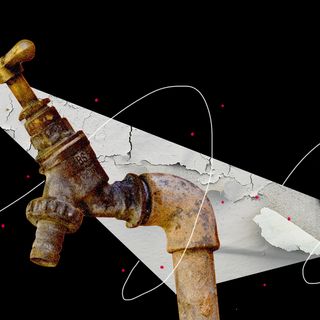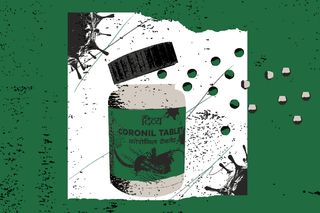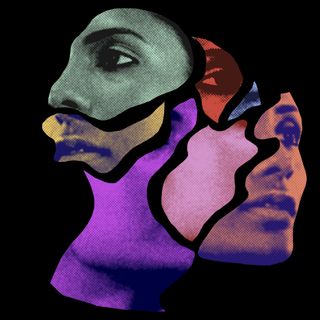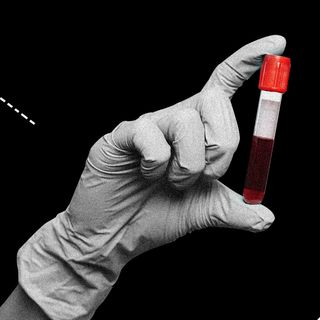
AYUSH Disciplines Have Value in the Context of Covid19, Despite Unscientific Claims Like Patanjali’s
AYUSH’s own guidelines clearly emphasize focusing on preventative care — they are meant to accompany standard Covid19 care, not replace it.

In June 2020, Patanjali Ayurved Limited announced that their formulation, ‘Coronil,’ was a 100% cure for Covid19. With marketing ferocity, the group launched the product as the “first evidence-based Ayurvedic medicine for coronavirus.” The Ayurvedic intervention, Coronil Kit, bore the price tag of Rs. 545 and contained an oil to be applied in the nostrils and two other herb-based tablets.
Patanjali Research Institute, Haridwar, and NIMS University, Jaipur, claimed to have jointly conducted “randomized, placebo-controlled double-blinded clinical trials.” This means a placebo was used in over 50% of the cases – indicating allopathic treatment was denied to these patients for a life-threatening disease – which raises major ethical questions. To date, the associated research papers are not available in the public domain, leaving other crucial questions regarding their methodologies unanswered. The selection of only asymptomatic patients further adds to this chaos.
Private sector enterprises like Patanjali are governed by the guidelines of the Ministry of AYUSH (Ayurveda, Yoga & Naturopathy, Unani, Siddha, and Homoeopathy). The kit was launched despite the fact that the Ministry had issued an order at the beginning of the pandemic to all concerned regulatory authorities “to stop and prevent publicity and advertisement of AYUSH-related claims for Covid19 treatment.” More importantly, the methodology used for the clinical trials of Coronil did not conform to the guidelines issued by the Central Council for Research in Ayurvedic Sciences. These guidelines stress a series of methodological phases, including a preparatory phase, pre-clinical safety studies, animal studies for biological activity, finalization of clinical protocols, and finally, execution of clinical trials.
Related on The Swaddle:
Despite Criticism, AYUSH Ministry Plans to Begin Clinical Trials of Ayurvedic Herbs
Following pressure from AYUSH, on June 30, Patanjali completely retracted their claim, stating that “Patanjali has never claimed to make Corona medicine.” The company is now being forced to sell the product as an ‘immunity booster.’
Another such major claim of a faith-based coronavirus treatment came from Tamil Nadu. The ‘Siddha treatment for coronavirus,’ sans any empirical evidence, was also corroborated by a state minister. This claim was out-rightly rejected by the scientific community for want of clinical trials and documented results.
Such incidents are an inaccurate representation of what AYUSH stands for, and increasingly lead people to believe false notions about the disciplines. To label the entirety of AYUSH as ‘pseudoscience’ based on such cases is a fallacy. Coronil’s claims of being a coronavirus cure stand in stark contrast with AYUSH’s own guidelines that clearly emphasize focusing on prophylaxis (i.e., preventative care) and population-based interventions. AYUSH disciplines are meant to act as an add-on to standard care for Covid19.
The importance of AYUSH, both from an anthropological as well historical perspective, cannot be ignored in healthcare. It is also imperative for modern medicine practitioners and researchers to understand these indigenous systems of medicines from a philosophical, as well as an interpretive, perspective. AYUSH, internationally understood as Complementary & Alternative Medicines (CAM), has long been a part of the cultural practices of countries like China, India, Columbia, and Chile, due to profound apprehensions about the side effects of pharmaceutical drugs.
Further, modern notions of healthcare are severely limited when treating four key non-communicable diseases (NCDs) of our times – cardiovascular diseases, chronic respiratory diseases, diabetes mellitus, and cancer. These are jointly responsible for over 80% (over 33 million) of NCD-related deaths globally, per the World Health Organization. This, in addition to a rudimentary and mechanical doctor-patient relationship in the modern medicine system, leads patients globally to be swept over by AYUSH’s individualistic, attention-centric approach, which may be considered incompatible with precision-based modern medicine. However, while an AYUSH practitioner may not hesitate in referring a patient to a clinician, clinicians are usually reluctant to do the reverse. This stems from a lack of understanding and empirical validation of AYUSH systems of medicine.
For all this to change, the Ministry of AYUSH needs to explicitly state its stance on unscientific and ridiculous claims associated with things such as cow urine, cow dung, eating garlic, homeopathic medicines, and yoga asanas for prophylaxis usage or treatment against Covid19. Large-scale longitudinal studies also need to be conducted to understand and document research associated with AYUSH. Toxicity is considered another major issue with AYUSH medicines, which are often administered in mixed formulations by practitioners. These medicines, thus, need to be studied according to national guidelines for pharmacological and toxicology studies.
Another crucial difficulty with the AYUSH system of medicines is its incompatibility with randomized controlled trials (RCTs), often considered the gold standard in modern medicine. Forcing AYUSH to fit into the RCT model, which requires all patients to be provided the ‘same’ treatment, is bound to result in varying outcomes. This is because AYUSH treatments are designed based on individual needs and, in the best practices of AYUSH, practitioners use a blended approach involving diets, herbs, medicinal plant products, yoga practices, and other interventions.
Related on The Swaddle:
Debunking the Myths About Covid19
While it’s understandable that any intervention that is thought to better or improve one’s health should ideally reflect the ‘clinical’ style of monitoring and assessment, that it needs to and would lead to ‘standardization’ is a misconception. What we need is new, enhanced research into methodological processes that include the best practices of RCTs as well as qualitative aspects that truly reflect the ‘individual-centric’ approach taken by AYUSH.
India is currently amidst an epidemiological transition, wherein a majority of the population is more vulnerable to chronic degenerative and man-made diseases than global pandemics like Covid19, or even diseases like HIV/AIDS. Now, more than ever, we need such holistic systems of care to help prevent and treat diseases. The most important aspect of the AYUSH system of medicines remains documenting the physiological and mental make-up of individuals, which is in line with the WHO’s norm on focusing on the physical, mental, social, spiritual, emotional as well as the ecological factors surrounding an individual while diagnosing or documenting health.
Ranju Anthony is a doctoral student in public health from a Central University based in New Delhi. His work spanning more than two decades encompasses different facets of the development sector, including strategic planning, partnerships and stakeholder engagement, developing collaborative ecosystems and design implementation of large scale social interventions. He has worked with international consulting firms, multilateral donor organizations and social enterprises in international markets.
Related


What Is Psychosis?
